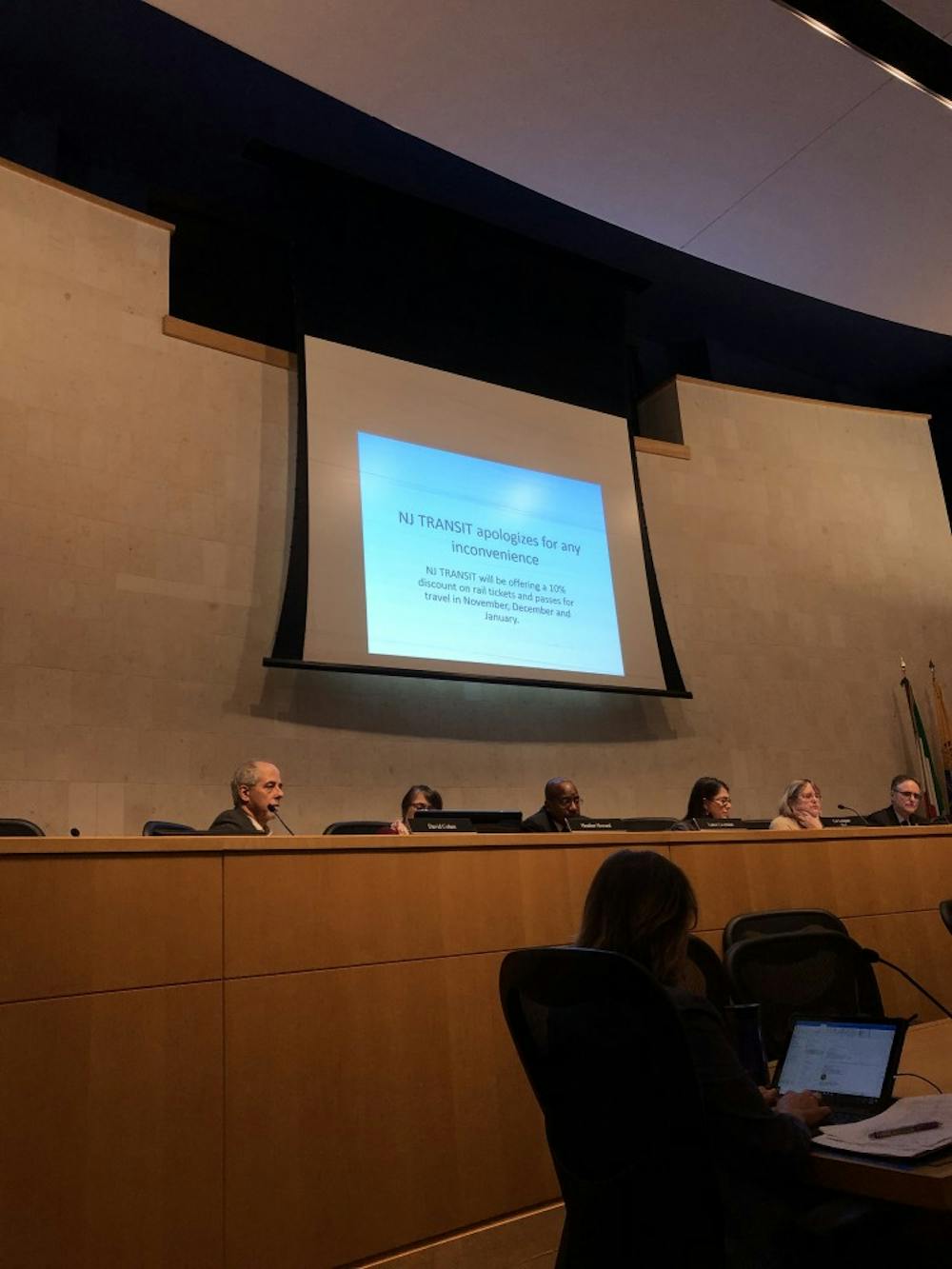Unhappy with the Dinky schedule changes? You aren’t alone.
Frequent Dinky train passengers disgruntled with the upcoming line shutdown have placed a “Save the Dinky” petition at Wawa.
Along with pre-written letters, the web address of a Change.org petition entitled “Dinky riders ask NJ Transit to reconsider plan to shutdown Dinky” was also on Wawa’s checkout counter.
Those interested were invited to attend the Princeton Council meeting on Monday, where New Jersey Transit Regional Manager Tom Clark answered questions about the shutdown. Among the main complaints against NJ Transit were the lack of communication and disproportionate inconvenience to Dinky riders.
The agency is hurrying to meet a Dec. 31 federal deadline to install statewide positive train control, “a federally mandated control system for trains,” according to Clark’s presentation. While the Dinky line, a “non-mainline track,” is exempt from PTC installation, “crews are needed from the Dinky, and equipment, in order to help us meet this deadline,” he said.
“We have hundreds of locomotives that need to be tested. It’s a massive job,” Clark said. “It’s not a decision that we wanted to make but one that we have to make.”
In the meantime, NJ Transit will offer a bus service that “mirrors the Dinky schedule,” according to Clark. The agency is “offering a 10 percent discount on rail tickets and passes for travel in November, December, and January.”
Princeton Council president Jenny Crumiller expressed frustration over confusing information and costs to Princeton passengers.
Originally, she wasn’t sure if the Dinky itself would be receiving PTC and had trouble getting clarification from the NJ transit website.
“It was troubling, especially as elected officials, to find out that we’re not getting any benefit from this,” she said.
Other meeting attendees asked about the environmental impact, accessibility of bus lines, especially to disabled passengers, schedules, and whether the three-month suspension would become a permanent shutdown.
Addressing those questions, Clark said that “currently, New Jersey transit does operate clean-burning vehicles…. Unfortunately, we don’t have any facilities in this area that can operate and service and maintain those vehicles.”

Clark said that the buses were ADA-compliant and that “during peak rush hours,” more than one bus will be deployed to ensure that all riders are accommodated.
Andrew Erlichson, an advisor at the Keller Center and a trustee at the Princeton Public Library, uses the Dinky to get to work. He said his initial understanding was that the Dinky was being shut down to install PTC.
“But, my understanding is that the Dinky line is exempted from the requirements … and that they are discontinuing the service for that period of time because they want to use the cars elsewhere in the system,” Erlichson said. “It seems that it’s not very fair. It inconveniences and favors other customers of the system over Princeton customers.”
Princeton resident Karen Blu uses the Dinky for transit to New York. She said that the train’s accessibility and reliability made it a far better travel option than bus or car.
“The fear is that if they take it off for three months, they might not take it back,” she said.
Stephanie Tubiolo, assistant director of choirs at the University, directs a youth choir in New Haven, Conn., and has family on Long Island.
“I’m back and forth through the city a lot, whether I’m going to Connecticut or not,” she said.
Tubiolo first found out about the shutdown from a Facebook post. Using an Uber to get to Princeton Junction, she said, would be very cost-ineffective.
“If it [the bus] mirrored the schedule exactly, I mean I would take it,” she said.
However, she also echoed concerns about the bus being subject to conditions like traffic and weather “in a way that the train won’t [be], especially as the shutdown’s during the winter.”








